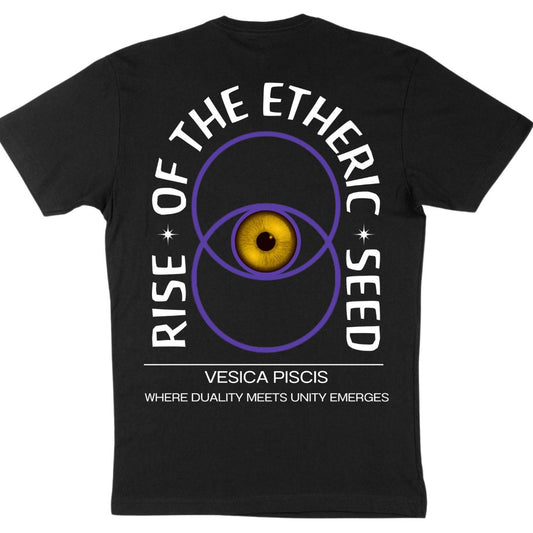Supporting Alchemy Research Through Meaningful Wear
Your contribution advances understanding of alchemical transformation and consciousness development
🔬 Our Research Focus
This collection supports ongoing research into alchemical principles and their applications to psychological and spiritual transformation. Each piece represents specific aspects of the Great Work—the alchemical process of transforming base consciousness into spiritual gold.
💎 Contribution Transparency
- 70% Research Funding: Directly supports alchemy consciousness studies, transformation research, and making alchemical wisdom accessible
- 30% Sustainable Creation: Ethical production honoring the sacred nature of alchemical transformation
Impact: Your support has funded research reaching 70,000+ seekers monthly, investigating how alchemical principles apply to personal development, healing, and spiritual growth.
Alchemy: The Sacred Science of Transformation
What Is Spiritual Alchemy?
Alchemy represents humanity's oldest systematic approach to consciousness transformation. While commonly misunderstood as primitive chemistry, true alchemy is sophisticated psychological and spiritual science that uses material processes as symbols for inner transformation.
Our research investigates how alchemical principles provide frameworks for understanding personal growth, healing, and spiritual development in contemporary contexts.
The Three Stages of the Great Work
Nigredo: The Black Work
The initial stage of decomposition and dissolution, where the old self must "die" to allow for renewal. Our research documents how this phase corresponds to psychological breakdown that precedes breakthrough, shadow work, and the necessary dissolution of limiting beliefs and patterns.
Modern psychology recognizes this as essential for authentic transformation—what Carl Jung called "the dark night of the soul."
Albedo: The White Work
The purification and cleansing stage where the dissolved elements are refined and clarified. This corresponds to the integration of unconscious content, the development of discrimination and wisdom, and the emergence of authentic spiritual insight.
Contemporary therapeutic approaches mirror this stage through integration work, mindfulness practices, and consciousness clarification.
Rubedo: The Red Work
The final stage of integration and completion where the philosopher's stone—enlightened consciousness—is achieved. This represents the union of opposites, the marriage of spiritual and material awareness, and the embodiment of wisdom in daily life.
Modern spiritual development recognizes this as the integration of awakened consciousness into practical living.
Alchemical Symbols and Sacred Patterns
The Language of Transformation
Alchemical symbols represent precise psychological and spiritual processes. Our research documents how these images activate specific aspects of consciousness development:
- Ouroboros: The eternal cycle of death and rebirth in consciousness development
- Philosophers' Stone: The goal of integrated, enlightened awareness
- Hermetic Vessel: The container of consciousness where transformation occurs
- Seven Planetary Metals: Different aspects of psychological and spiritual development
- Alchemical Fire: The transformative power of conscious attention and spiritual practice
- Salt, Sulfur, Mercury: The three principles of body, soul, and spirit integration
Contemporary Research Applications
How Alchemical Principles Address Modern Challenges
Our ongoing studies investigate practical applications of alchemical wisdom:
- Psychological Healing: How alchemical stages guide therapeutic transformation
- Addiction Recovery: Applying dissolution and purification principles to recovery processes
- Creative Development: Using alchemical principles to unlock creative potential
- Spiritual Practice: How alchemical methods enhance meditation and contemplative development
- Integration Work: Applying alchemical principles to integrate spiritual experiences
Our Collection Features
- Great Work symbolism - Visual representations of the three alchemical stages
- Traditional alchemical seals - Authentic symbols from historical alchemical texts
- Transformation imagery - Designs representing psychological and spiritual change
- Planetary metal symbols - Seven metals representing different consciousness aspects
- Sacred fire designs - Representations of transformative spiritual energy
- Modern alchemical applications - Contemporary expressions of ancient transformation wisdom
The Science Behind Alchemical Transformation
Modern psychology, neuroscience, and consciousness research validate many alchemical insights. Studies show that psychological transformation follows patterns remarkably similar to alchemical stages, and that symbolic engagement activates specific neural pathways associated with personal growth and healing.
Our research documents how alchemical methods can be understood through contemporary scientific frameworks while maintaining their spiritual depth and transformative power.
Research Partnerships
Collaborative Studies
Our alchemy research collaborates with:
- Depth psychology programs studying symbolic transformation processes
- Neuroscience labs investigating the brain basis of consciousness change
- Therapeutic institutions applying alchemical principles to healing
- Universities researching the history and influence of alchemical thought
- Consciousness research centers studying transformation and development
Evidence-Based Alchemical Research
Scientific Validation of Ancient Wisdom
- Transformation Neuroscience: How symbolic engagement affects brain plasticity and consciousness
- Therapeutic Applications: Clinical studies using alchemical frameworks in healing
- Meditation Research: How alchemical visualization practices affect consciousness states
- Creative Studies: Research into alchemical methods for unlocking creative potential
- Integration Research: How alchemical principles support psychological and spiritual integration
Join Our Research Community
When you support this collection, you become part of a global community dedicated to understanding and applying alchemical wisdom through rigorous research. Your contribution enables:
- Research into alchemical transformation principles and their practical applications
- Educational resources bridging ancient alchemical wisdom with modern psychology
- Digital archives making alchemical texts and symbols accessible
- Community programs exploring practical alchemical applications
- Academic partnerships studying consciousness transformation and development
- Clinical research applying alchemical principles to healing and therapy
🌟 Community Impact
Together, we've achieved:
- Funded transformation research reaching 90,000+ seekers monthly with alchemical wisdom
- Created educational materials bridging alchemy with modern psychology and healing
- Supported translation of 6 previously unavailable alchemical texts
- Built digital resources making alchemical symbols and processes accessible to modern practitioners
- Facilitated research partnerships between alchemical studies and consciousness science
Explore Related Research Areas
Discover more transformation wisdom through our specialized collections:
- Hermetic Research Support - Foundational principles underlying alchemical transformation
- Sacred Geometry Research Support - Mathematical patterns in transformation processes
- Depth Psychology Research - Modern psychological approaches to alchemical insights
- Esoteric Research Support - Comprehensive study of transformation traditions
Why This Matters Now: In our age of rapid change and psychological complexity, alchemical wisdom provides time-tested frameworks for navigating transformation consciously and skillfully. Through this collection, we're not just wearing symbols - we're supporting research into the science of transformation that helps individuals and communities evolve with greater wisdom and resilience.











